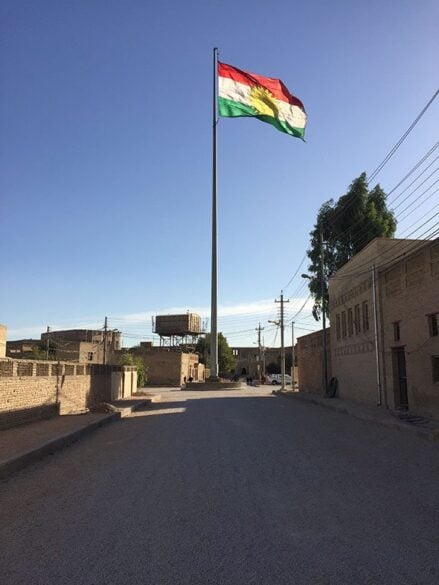But there’s a question behind it all: Should Christians fight back against persecution? We get that question in the comments on social media when we share about our family under attack. When insults are flung, should our brothers and sisters speak them right back? Should they block blows and deliver their own? Should they arm themselves and prepare to defend? It’s a hard question, but one that deserves an answer.
When it comes to a question of such intensity, the starting point should be the Bible.
What God’s Word teaches us
Let’s look at Jesus and His teachings. Throughout His own life, He faced persecution head-on on several occasions. How did He respond? And how did He teach His followers to respond in such instances?
When giving the Sermon on the Mount, Jesus said, “You have heard that it was said, ‘Love your neighbor and hate your enemy.’ But I tell you: Love your enemies and pray for those who persecute you” (Matthew 5:43-44). What a calling. And not only did Jesus give these words, He lived them. Even on the cross, Jesus prayed on behalf of those who were crucifying Him, asking His Father to forgive them (Luke 23:34). He didn’t demand violence or spew insults. He showed a love not of this world.
When it comes to persecution, what weapons does Jesus use: love and prayer?
It’s in our human-nature to want to put others in their place and fight back as hard as we can—to win—but throughout the New Testament, that’s not what we see. Time and again we see love and prayer as first responses.
Stephen, who is widely considered the first martyr, again illustrated compassion in the face of death. While being stoned, he cried out, “Lord, do not hold this sin against them” (Acts 7:60b). What a response to persecution: to love instead of hate.
Love and prayer
But the next—and maybe harder question to answer—is this: Why? Why should love and prayer be our default responses?
In Proverbs 25:21-22, we read: “If your enemy is hungry, give him something good to eat; if he is thirsty, give him water to drink. In doing this, you will heap burning coals on his head, and the Lord will reward you.” Love and prayer are not what are expected, and they can only come from God.
When under the fist of persecution, what a testimony—to heap coals on the enemy by loving and praying for them. It’s quite possible the only window of Jesus that persecutors will experience is through the persecuted. What an opportunity to show the love of Jesus—a love that fills and transforms His enemies. We hear stories, time after time, of persecutors having complete life-changing experiences because of the testimonies of those they’re persecuting.
Jesus doesn’t call us to attack or raise arms against those who persecuted us for our faith. In fact, in Matthew 7:1, Jesus says, “Do not judge, or you too will be judged.” Fighting back to intentionally hurt is not our job. Instead, on the complete flip side of the coin, Jesus illustrates we’re to show His love to those persecuting and to pray for them. Those are our greatest weapons against evil: love and prayer.




